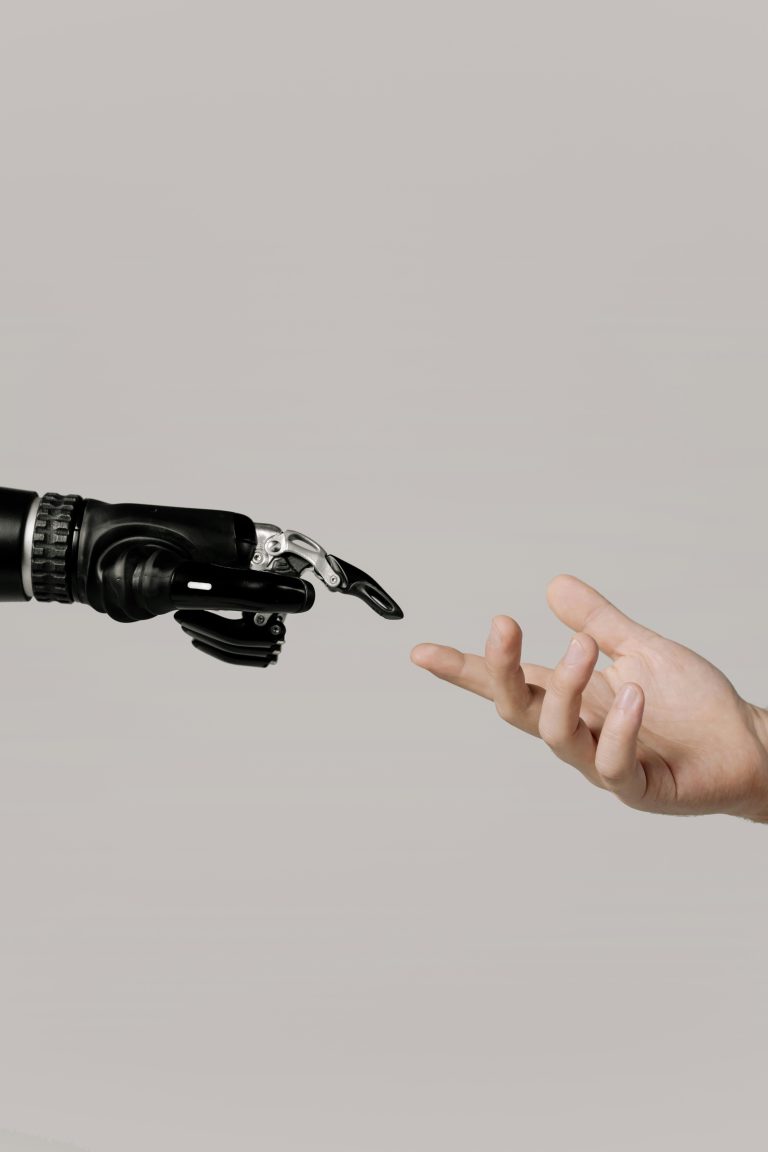The ‘Lone Wolf’ Mentality Is Hurting Us (And How to Reconnect)
The world constantly tells us to “handle it yourself,” “be independent,” and “don’t rely on others. It’s no wonder so many of us feel disconnected and alone. We’re surrounded by messaging that glorifies self-reliance while subtly suggesting that needing others is somehow a weakness.
I’ve noticed this paradox everywhere: we’re social creatures living in a culture that rewards isolation. The result is a society full of lonely people who are afraid to admit they need connection.
If you’ve ever felt like you’re missing meaningful relationships but aren’t sure how to build them, you’re not alone.
The Self-Sufficiency Trap
The ideal of self-sufficiency runs deep in our current cultural DNA. From pioneer stories to “pull yourself up by your bootstraps” narratives, we’ve been taught that true strength means never needing help.
This mindset shows up in countless ways:
- the expectation that new mothers should “bounce back” quickly without support;
- the praise we give to people who “never complain” about their struggles;
- the subtle judgment toward those who ask for help;
- the idea that successful people are “self-made”;
- the unspoken belief that needing others means you’re somehow failing.
This extreme individualism has serious consequences. Studies show that people in individualistic cultures like the United States experience higher rates of loneliness, depression, and even shortened lifespans compared to more collectivist societies.
The Hidden Costs of Going It Alone
What does this cultural obsession with self-sufficiency cost us? More than most people realize:
Physical health impacts. Loneliness is associated with a reduction in lifespan similar to smoking 15 cigarettes a day. It increases the risk of heart disease, stroke, and dementia.
Mental health struggles. Isolation is linked to increased rates of anxiety, depression, and even suicidal thoughts. According to Harvard research, strong social connections are one of the strongest predictors of overall happiness and well-being.
Reduced resilience. When we face challenges alone, we miss out on the emotional support, diverse perspectives, and practical help that can help us bounce back from adversity.
Professional limitations. Even in our careers, the “lone wolf” approach can hold us back. The most successful people typically have strong professional networks and mentors who guide their development.
The Missing Piece: Interdependence
The antidote to toxic self-sufficiency isn’t dependence, it’s interdependence. This means recognizing that humans naturally rely on each other, and that’s a strength, not a weakness.
Interdependence looks like:
- a community where people contribute different strengths;
- relationships where support flows in multiple directions;
- the understanding that sometimes you give help, and sometimes you receive it;
- acknowledging that no one is truly “self-made”, we all rely on others.
Dr. Brené Brown, researcher and author of Daring Greatly, puts it this way:
“Connection is why we’re here. We are hardwired to connect with others, it’s what gives purpose and meaning to our lives.”
Signs You’re Stuck in the Self-Sufficiency Trap
How do you know if you’ve fallen into the self-sufficiency trap? Here are some common signs:
- you rarely ask for help, even when you’re struggling;
- you pride yourself on not “bothering” others with your problems;
- you feel uncomfortable when someone offers assistance;
- you believe relationships shouldn’t require effort;
- you wait for others to initiate get-togethers or conversations;
- you feel guilty when you can’t handle everything yourself;
- you’ve mastered the “I’m fine” response even when you’re not.
If these sound familiar, it’s time to reconsider. Many of these patterns are incredibly common in our culture, and they’re making us lonely, tired and miserable.
Breaking Free: Practical Steps Toward Connection
The good news is that we can challenge these cultural norms and create more connected lives. But how?
1. Recognize Connection as a Basic Need
Start by acknowledging that meaningful relationships aren’t a luxury, they’re as essential to your wellbeing as food and shelter. This isn’t just feel-good advice, it’s backed by science.
According to Maslow’s Hierarchy of Needs, love and belonging are fundamental human needs, right after physiological and safety requirements. When we treat connection as optional, we deny ourselves something truly essential.
2. Practice Asking for Help
This is often the hardest step for self-sufficient people. Start small:
- ask a neighbor to water your plants while you’re away;
- request recommendations for a good mechanic or doctor;
- reach out to a friend when you’re having a tough day;
- delegate tasks at work that someone else might do better.
Each time you ask for help, you’re not just solving a problem, you’re creating an opportunity for connection. You’re also giving others the gift of being needed, which most people actually appreciate.
3. Create Connection Rituals
Connection doesn’t always happen spontaneously, especially in our busy world.
Creating regular rituals can ensure that relationship-building becomes part of your routine:
- schedule weekly video calls with faraway friends;
- start a monthly book club or dinner gathering;
- create a walking group that meets every Saturday morning;
- establish regular coffee dates with colleagues;
- book a call with me (Addie) here.
According to relationship expert Dr. John Gottman’s research at the Gottman Institute, these consistent positive interactions build trust and closeness over time.
4. Join Communities Built Around Shared Interests
One of the easiest ways to develop connections is through shared activities:
- sports teams or fitness classes;
- volunteer organizations;
- religious or spiritual communities;
- hobby groups like cooking, gardening, or art classes;
- support groups related to specific life experiences.
These structured settings provide natural conversation starters and regular opportunities to see the same people, which research shows is essential for friendship formation.
5. Embrace Vulnerability
Dr. Brené Brown‘s research shows that vulnerability (sharing our authentic selves, including our struggles) is the foundation of meaningful connection. Yet vulnerability is exactly what self-sufficiency culture discourages.
Try:
- sharing something you’re struggling with when someone asks how you are;
- admitting when you don’t know something;
- expressing appreciation directly rather than assuming people know how you feel;
- asking questions when you’re curious about someone’s experience.
Each act of vulnerability creates space for authentic connection.
6. Reframe Your Definition of Strength
Many of us avoid seeking connection because we’ve been taught it signals weakness.
Try reframing your thinking:
- True strength isn’t never needing help, it’s knowing when to ask for it;
- Building a support network isn’t dependency, it’s smart life strategy;
- Vulnerability isn’t weakness, it’s courage.
💡 As author Stephen Covey noted in The 7 Habits of Highly Effective People, interdependence is actually a more mature and advanced state than independence.
7. Start Being the Connector
Sometimes the best way to create connection is to facilitate it for others:
- host gatherings (they don’t need to be elaborate);
- make introductions between people who might enjoy knowing each other;
- check in on friends going through transitions or challenges;
- be the one to suggest plans rather than always waiting for invitations.
By becoming someone who creates connection opportunities, you’ll naturally find yourself at the center of a growing web of relationships.
Navigating Common Challenges
Building connection in a self-sufficiency-focused world isn’t always easy. Here are some common challenges and how to address them:
Fear of Rejection
It’s natural to worry about reaching out only to be turned down. But keep in mind:
- most rejection isn’t personal, people are busy and have their own struggles;
- for every rejection, there are likely several successful connections waiting to happen;
- even small interactions can build over time into meaningful relationships.
Busy Schedules
When everyone is busy, connection often falls to the bottom of the priority list. To counter this:
- schedule connection time as you would any other important appointment;
- combine connection with activities you already do (walk with a friend instead of alone);
- remember that even brief, quality interactions can nurture relationships.
Digital Distractions
Our devices often create an illusion of connection while preventing deeper engagement:
- create tech-free zones or times in your day;
- practice giving people your full attention during conversations;
- use technology intentionally to facilitate in-person meetings, not replace them.
The quality of our interactions matters far more than quantity, meaning a few minutes of focused conversation can be more meaningful than hours of distracted togetherness.
The Ripple Effect of Connection
When you choose connection over self-sufficiency, the benefits extend beyond your own well-being:
- you create permission for others to seek connection too;
- you help build more resilient communities;
- you model healthier relationship patterns for younger generations;
- you contribute to a cultural shift away from toxic individualism.
Each time you reach out, ask for help, or make yourself available to others, you’re not just changing your own life, you’re helping create a world where interdependence is valued.
You Can Choose A Different Way Forward
Our culture’s celebration of self-sufficiency isn’t going to change overnight. But you don’t have to wait for a cultural shift to create more connection in your life.
By recognizing the value of interdependence, taking small steps toward vulnerability, and creating consistent opportunities for meaningful interaction, you can build a life rich in relationships, even in a world that often seems designed for disconnection.
Needing others isn’t a weakness. It’s what makes us human.
What connection challenges do you face right now? I’d love to hear your story: addie {at} anonymousfriend.co 📩







